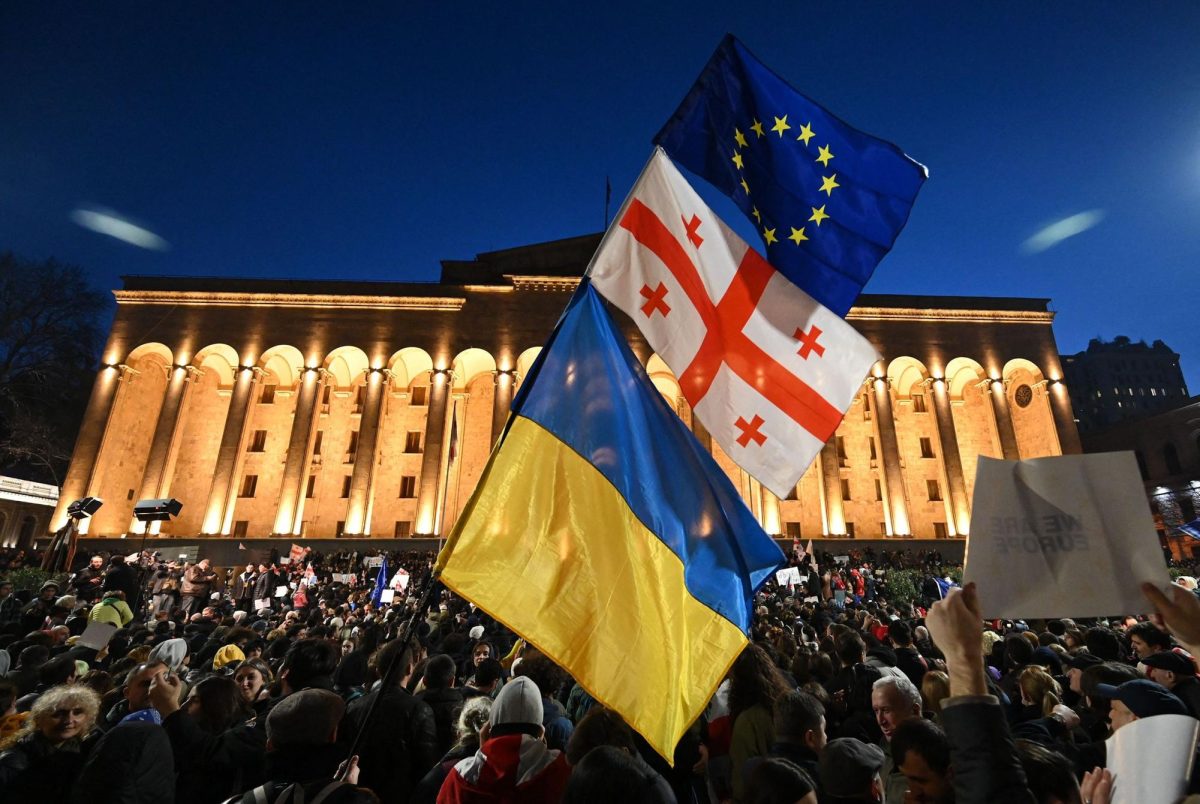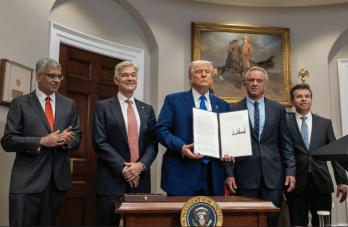In my native country of Georgia, hundreds of thousands of protestors have been facing water cannons, chemical spray, tear gas, and rubber bullets for over two weeks in objection to the Georgian government’s new draft law. The Georgian Dream, the current party in power, has been pushing forth a bill that requires “broadcast media that receive 20 percent or more of their annual revenue… from a ‘foreign power,’ excluding the Russian Federation, to register with the Ministry of Justice as ‘organizations serving the interest of a foreign power’” (Reuters). This proposed bill can be summarized very easily underneath all of the legal jargon in a few words—a Kremlin-dominated attempt to prevent Georgia from moving closer to Europe and to pull it back under Moscow’s influence.
For those who do not know, Georgia—in its native Kartvelian language, Sakartvelo—is a country situated at the crossroads of Eastern Europe and Western Asia with heaps of overlooked culture and history. It was once part of the Union of Soviet Socialist Republics (USSR), but its history stretches back far beyond that, with the earliest evidence of human habitation in Georgia dating back to around 1.8 million years ago named “the oldest indisputable remains of humans discovered outside of Africa” (Georgia About). And for those who may be familiar with Greek mythology, the tale of Jason and the Argonauts seeking the Golden Fleece brings another layer of history to Georgia. The land of Colchis—in Georgian, Egrisi—where the legendary fleece was located, is the western part of modern-day Georgia.
Following the dissolution of the Soviet Union in 1991, Georgia fought to rebuild itself, pursuing closer ties with the West and distancing itself from Russia; this newly proposed bill would only serve to hinder what little progress towards democracy the country has made since that time. USAID writes, “For over three decades, the United States has stood by the Georgian people…and we will continue to stand with them as partners and friends. We are extremely concerned that the introduction of the Transparency of Foreign Influence bill … threatens Georgia’s democratic trajectory.”
Additionally, has the current government forgotten what Russia has done to their country? As a result of Russia’s military aggression and subsequent occupation of Abkhazia and the Tskhinvali region/South Ossetia in 2008, up to “500,000 people were ethnically cleansed, with those who escaped becoming IDPs [internally displaced persons]” (Ministry of Foreign Affairs of Georgia). Even to this day, these are individuals who are deprived of the right to return to their homes. These people, some of whom I know personally, had to flee along the trails of the Caucasus Mountains as Russian soldiers pursued them.
In the end, Georgia, and by extension, Georgians, have given so much to propel their country into the safety net that is the European Union. We have endured tumultuous transitions and conflicts with Russia to forge a path towards European integration, driven by a vision of stability, prosperity, and shared values. These protests are not merely about political maneuvering; they represent a collective outcry against the erosion of hard-fought freedoms and the subversion of democratic ideals.







